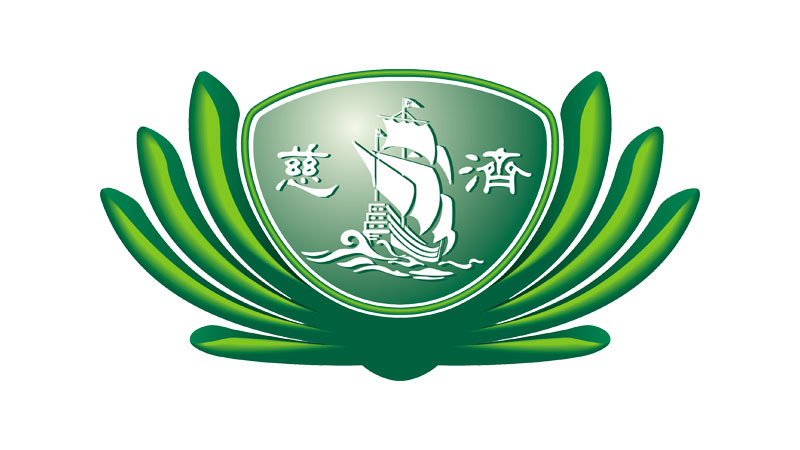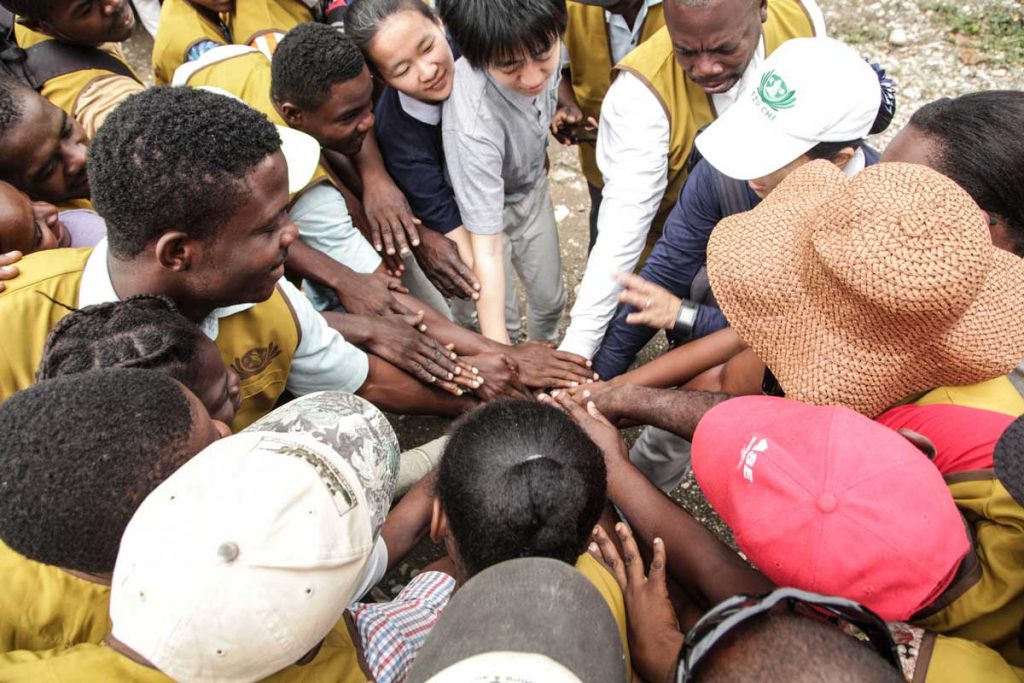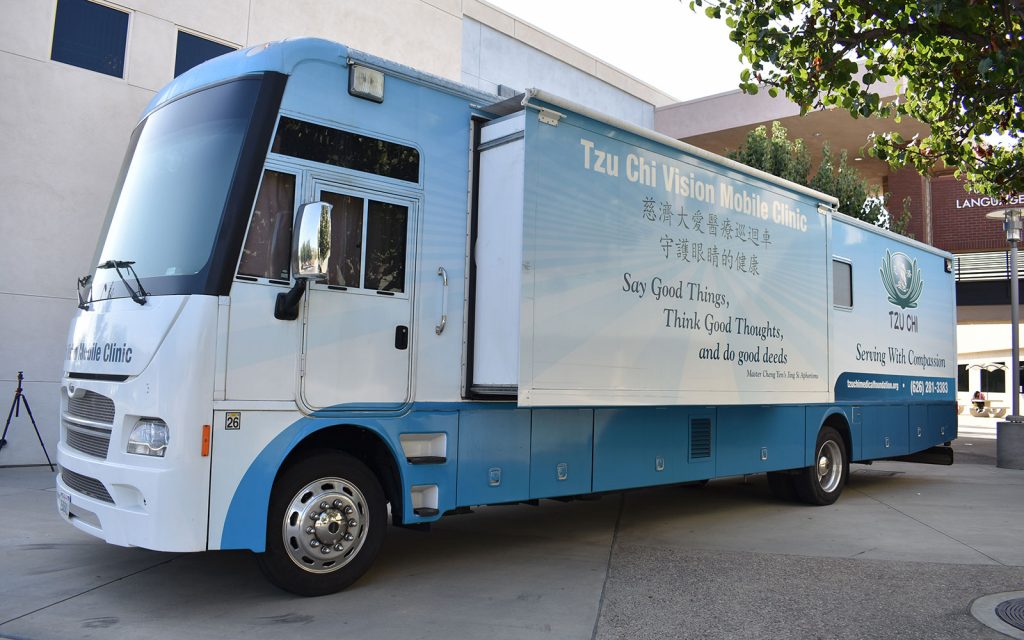
Written by Abhishek Dalal
Edited by Dilber Shatursun
At Tzu Chi’s Mobile Clinics, I have enjoyed assessing and attending to patient needs as a volunteer. This has provided me insight into marginalized and underserved patient populations’ health disparities, which I have further explored through my qualitative research.
All of this service has been an invaluable experience not only to participate in the empowerment and healing of patients’ lives but also to find a sense of purpose in my life in “Tzu Chi,” or compassion and relief.
The Joy of Serving Those Different than Me
Our mobile clinic visits a range of sites from homeless shelters to low-income mental health clinics. On our site days, I am a jack-of-all-trades and participate within the mobile clinic team however I am needed. I first started by assisting patients with completing the rigorous registration forms, often in Spanish and with undereducated patients. Since, my participation has evolved.
I also now perform all screening examinations and throughout the process, I have the chance to bond with patients. I have given mothers a respite by playing with their children, and I’ve laughed with others over comedy videos on YouTube. The days of home physician visits are long gone, but I ensure that I interact with patients as friends.
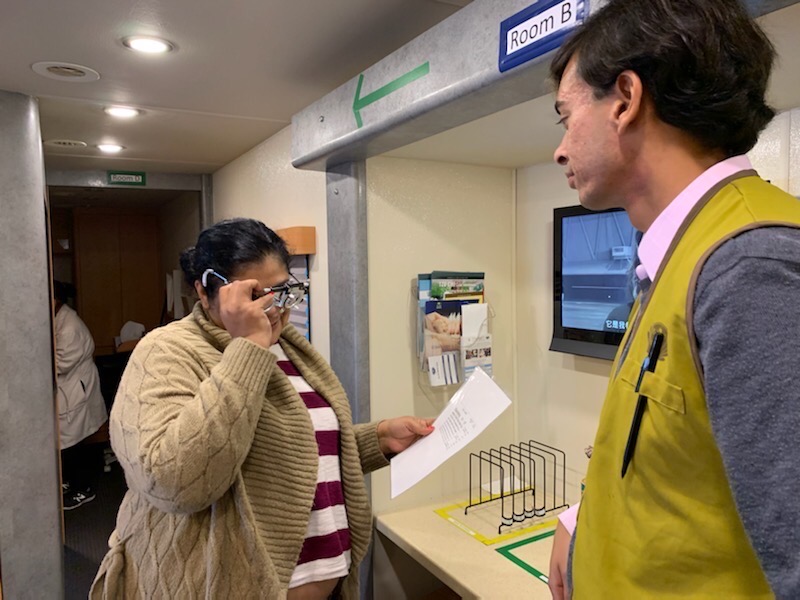
I communicate with patients in Spanish whenever I can. They often invite me to interpret for their encounter with our resident optometrist, Dr. Lina Lin.
In fact, my heart broke when a Dominican man confided with me that his glaucoma had lay undiagnosed and untreated for many years. He told me in Spanish that he’d visited many clinics before and they never had addressed his vision concerns.
I am proud to be part of a team that delivers healthcare to all and to be developing my Latino cultural and language competency to practice equitable care in the future.
Eye Health Services for Vulnerable Communities
By building relationships with patients and getting them to open up, I have come to understand Tzu Chi Mobile Clinics’ patient experiences and how our work is particularly impactful. Dr. Lina Lin asked me to collect patients’ stories and I organized those of 10 patients from 5 different site visits across the Greater Los Angeles area.
I utilized my qualitative research skills to further understand our patients’ needs. I analyzed my notes (which I like to call data with a soul) using an iterative approach. I began by reading my notes, line by line, to become more familiar with patients’ stories and to identify general emergent themes and relationships between.
As I compared and contrasted the patients’ stories, I developed a codebook to highlight patterns and ideas that emerged from the underlying themes that threaded their narratives together. I have drawn from the experiences of all the patients to understand their health disparities.
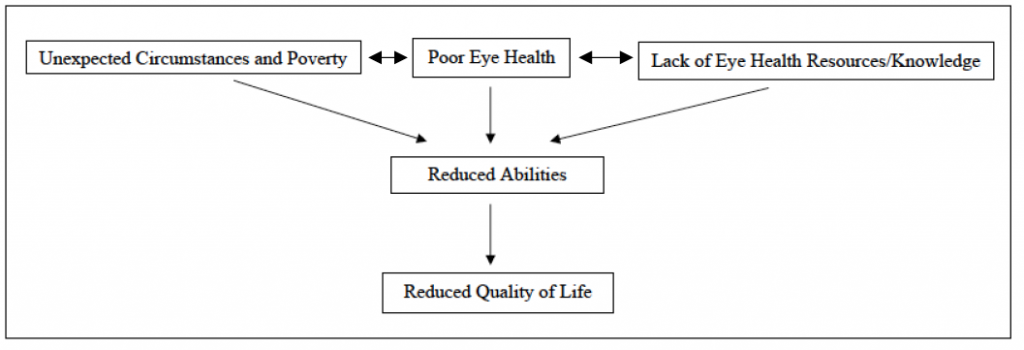
Some of the participants report that they were previously fully contributing citizens and lived comfortably. A woman named Sharon spoke about how she was like any other middle-class woman until her husband spent all her money. A male patient, Michael, recounted how he became homeless after becoming hospitalized and losing his job.
Yet, many of our patients come from long-term poverty and they are caught in its vicious cycle.
They can be living hand-to-mouth for many years and have limited resources to advance in life. Their limitations are often exacerbated by their poor eye health and the lack of resources.
A patient named David reported that he has had “eye problems forever and cannot see out of [my] right eye.” According to another named Patricia, she has had visual difficulty for over 5 years now, including reading from a distance and being unable to drive. Poor eye health disrupts one’s ability to function and contribute fully- in many cases, adding insult to injury.
Lastly, there is a lack of eye health knowledge and resources. Medi-Cal does not cover prescription eyeglasses- a significant financial barrier for patients who struggle to make ends meet. The copay alone forces many patients to avoid getting corrective vision care altogether.
David admitted that he “picked out eyeglasses from Walmart, but these weren’t helpful.” Sharon, too, shared that “she tried over-the-counter reading glasses and eye drops but neither were helpful,” and those glasses gave her headaches.
In lieu of professional treatment and in the absence of sound eye hygiene knowledge, many patients will often try to find their own solutions to often times poor outcomes.
Tzu Chi Mobile Clinics serve a complex patient population. A patient named Robert reported that “he has not been able to afford eye care and so struggles with reading for his graduate student coursework.” Our patients often face such struggles that hinder their progress; their reduced vision and livelihood further making it more difficult to navigate their socioeconomic status, in turn.
The combination of poor eye health, poverty, and the lack of resources hold our patients back from addressing any one of these challenges, let alone their decreased autonomy.
Despite the complications our patients face, the mobile clinics provide effective support and relief. The mobile clinic team provides vision screenings and heals eye conditions. We partner with service organizations, where our patients are seeking their aid and actively trying to progress in life.
Our patients would be better equipped at navigating their unfortunate circumstances and poverty, especially because they are working hard to restore their abilities with the service organizations that Tzu Chi Mobile Clinics partners with. Thus, given that our patients actively strive to progress in life, they would benefit tremendously from their enhanced vision and enhanced livelihood.
Robert reflects that he “wants everybody to know that poverty can happen to anybody,” and that he sends positive wishes to Tzu Chi’s team for “helping folks like him break the cycle of poverty and become fully contributing citizens.”
Tzu Chi not only provides compassionate, patient-centered care to marginalized and underserved communities, but also is able to spearhead our patient’s progression in life.
Moving Ahead for a Life of Service
The words of gratitude and hopefulness that I hear from patients fills me with a sense of fulfillment. I am proud to have had the privilege to bond with patients and empower them by participating in a team that heals their eye health conditions.
I hope to channel my experiences of assisting underserved patients and helping them unburden themselves to become the best physician possible.
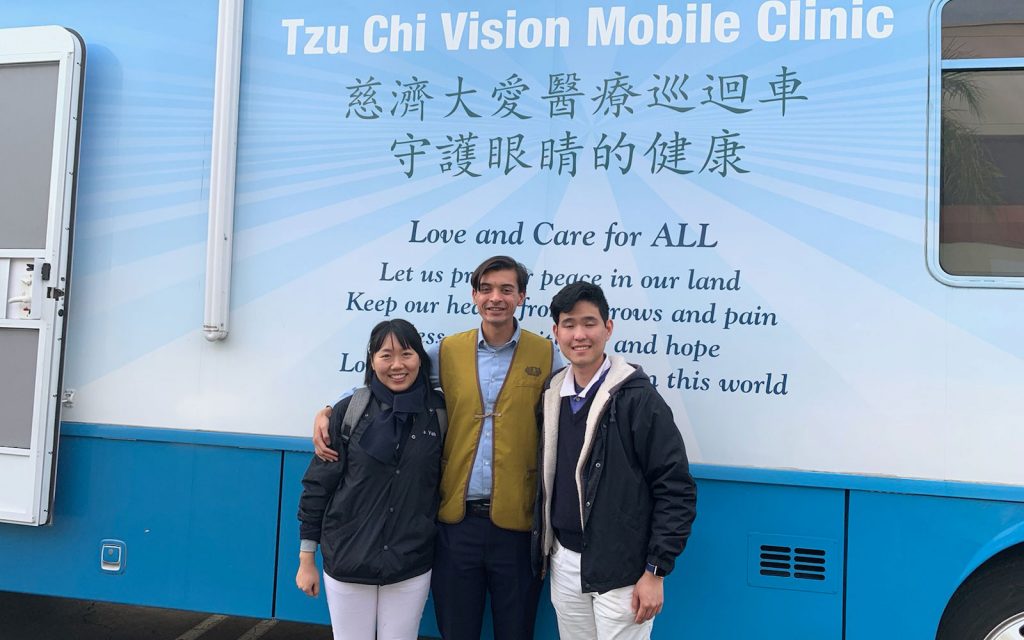
I am reminded of the aphorism “if you light a lamp for someone else, it will also brighten your path.” I recently learned that “Tzu Chi” means compassion and relief, precisely what I want to dedicate my life to, and the purpose with which I wish to live my life.
